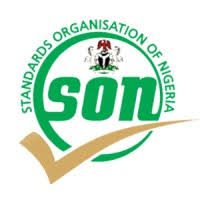
NASENI woos producers of Lithium batteries to manufacture in Nigeria
The National Agency for Science and Engineering Infrastructure (NASENI) is seeking investors that would collaborate with the Agency in local production and domestication of Lithium batteries among other renewable energy solutions.
The Executive Vice Chairman/CEO of NASENI Dr, Bashir Gwandu speaking today in Abuja said the Agency was ready to partner with international companies that are willing to set up their industries in Nigeria and start local production of renewable energy solutions, electric vehicles parts and other capital goods that could create jobs and reduce Nigeria dependence on foreign goods that exert pressure on our foreign exchange for the country.
Dr Gwandu who disclosed this while receiving a business delegation from LEMI Technology Shenzhen, China at NASENI headquarters said that “NASENI is already doing a lot in the area of Solar Panel Production”.
He says very soon NASENI will attract solar cell manufacturing to improve synergy with its existing work on solar panel assembly. He said the Agency has held meetings with other companies from around the world with a view to seeking partnership on local production of lithium-based end-products in Nigeria as against the normal practice of foreign companies exporting the raw materials outside the country for processing.
According to him, taking some of the visions of NASENI forward, which is domestication of technologies, capital goods production and commercialization in Nigeria, NASENI would help bridge the technological gaps between Nigeria and other countries, help stop importation of these technologies and encourage local production.
He also said NASENI will be working with the National Automotive Design and Development Council (NADDC) to encourage development and production of electric vehicles and even conversion of existing vehicles to electric-vehicles as against producing from scratch. In that same regard, NASENI is also in discussion with various stakeholders on promotion of the installation of electric vehicle charging stations on major roads across the country.
“So, we are inviting friends of Nigeria to come here and establish here. We are encouraging those who can come and produce locally. We will give them support and ensure that the investment environment is encouraging,” he said.
The NASENI EVC hoped that this call is an opportunity to partners who want to produce in Nigeria to do so. The Federal Government, he disclosed, “would welcome any company who gets to us first”, adding that on the production of Lithium batteries, the Agency was ready to go into partnership with companies that are willing to establish their factories in Nigeria.
Dr. Gwandu suggested that NASENI and LEMI Technology should work out the areas of possible collaborations in the production of the lithium battery and ensure that all the safety and environment regulations are followed.
While emphasizing NASENI’s priority area to be the production of lithium battery and inverters, Dr Gwandu expressed delight in working out a memorandum of Understanding (MoU) with LEMI Technology with a view to ensuring safest means of producing the lithium-based batteries, taking into cognizance Nigeria environmental peculiarities.
The founder of LEMI Technology, Ms. Joyce Chen in her speech said the company is ready to partner with NASENI and invest in the country, promising that they look forward to a rewarding relationship with NASENI and the Nigerian government. Other members of the delegation include the Chief Investment Officer, Mr. Rocky Hu; Chief Financial Officer, Ms. Biju Yao; Oversea Business Director, Ms. Monica Liang and Engineer Mr. Lucia Peng.
Giving details of the visit, the Chief Executive Officer of LEMI Technology Mr. Xie Feng expressed his company’s willingness to partner with NASENI through MoU on renewable energy with particular reference to products like solar and television panels, inverters and battery production.
He said Nigeria and China have a brotherhood that spans many years, adding that Nigeria with its teeming population, it is critical for investment opportunities. Mr. Feng added that LEMI Technology has been operating in the Nigerian market since 2018 and had provided job opportunities to Nigerians and have sold renewable energy products to over 200,000 Nigerian households.
NASENI is the Nigerian only purpose-built Agency with specific mandate in the area of capital goods research, production, and reverse engineering in the following broad areas: Engineering Materials, Industrial and Analytical Chemical Materials, Scientific Equipment and components, Engineering Equipment, Engineering Designs and Standardization, and Power Equipment.
On resumption of duty, one of the projects embarked upon by the EVC of NASENI amongst many others was to summon some of the key exporters of Lithium from within Nigeria and advised them to start thinking of inviting their offtakers in different parts of the world who manufacture lithium batteries to start planning to come and invest in the end-product production in Nigeria.
He encouraged them to take advantage of the discussion and harness the first mover-advantage because those who come to invest will be assisted by NASENI through promotion of government policy to limit export of all types of lithium except what Nigeria cannot process to an end-product.
He emphasized that Nigeria cannot continue to export raw lithium if other countries such as Zimbabwe have gone to the extent of lithium processing. He stated that Nigeria should be at the fore-front of battery production since it has all the relevant raw materials including Phosphate.
He stated that in any area where NASENI can attract manufacturers be it in renewables or other areas such as aerospace industries, any company that can come to Nigeria and process the raw elements into end-product will be supported by NASENI. Companies invited for earlier discussion on the Lithium included suppliers to CATL and LEMI of China.
Today the EVC received the first delegation from LEMI of China to start conversation on the local production of various types of lithium batteries and other products in the photovoltaics value chain.



